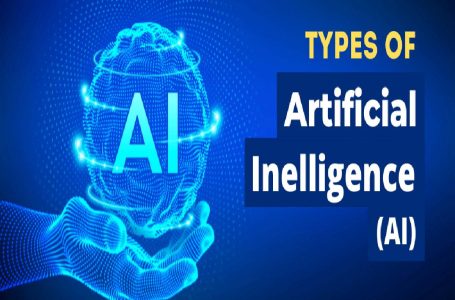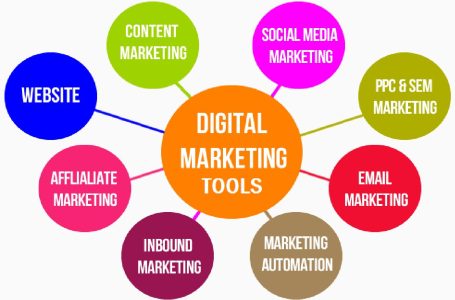AI testing can increase software testing speed, accuracy, and efficiency while guaranteeing high-quality software.
Numerous intriguing AI testing tools include self-healing mechanisms, automation for intricate processes, and user-friendliness for non-technical people. These technologies will probably become essential for software development teams looking to stay competitive in the market and establish new standards for quality engineering.
AI: What is it?
AI is the capacity of a machine to carry out operations that are normally carried out by human cognition, such as learning, reasoning, problem-solving, and decision-making. Artificial intelligence can be applied in a variety of ways, including rule-based systems, expert systems, neural networks, and machine learning. In order to learn from data, make judgments based on rules and patterns, and gradually enhance performance, artificial intelligence employs methods and algorithms.
Through automated test script development, test data production, and test generation, artificial intelligence (AI) can be used in software testing to enhance both the manual testing procedures and the program quality.
Why Does Software Test Automation Require AI?
AI has the potential to completely transform testing procedures, so integrating it into test automation is essential. Automation powered by AI improves test coverage, speeds up execution, and spots complex patterns that human testers might miss. AI enables more thorough, effective, and flexible testing, which eventually results in software releases of improved quality by sensing data and adjusting to changing software.
Present Situation of AI in Software Testing
In the present state of the art, tasks including application identification, modeling, test generation, and failure detection are automated by intelligent and autonomous agents known as “test bots.” Test bots are implemented using a variety of machine learning approaches. These consist of neural networks, reinforcement learning, and decision tree learning, among others.
Unlike conventional test automation tools and frameworks, machine learning enables test bots to be resilient and behave in unpredictable situations. Over the past ten years, several AI-driven automation testing methodologies have emerged, such as:
- Comparing application versions overbuilds, categorizing the differences, and learning from the classification’s feedback is known as differential testing.
- Visual testing is the process of testing an application’s appearance and feel by using screen comparisons and image-based learning.
- Declarative testing involves expressing a test’s purpose in a natural or domain-specific language and letting the system determine how to execute it.
- Auto-correcting element selection in testing when the user interface changes is known as self-healing automation.
Software Testing using AI
The use of AI in software testing has completely changed how we do testing. AI has the potential to improve software testing’s efficacy, efficiency, and dependability. Human testers can concentrate on more complicated testing scenarios by using AI-powered testing solutions to automate tedious and routine work. Additionally, by detecting and forecasting software flaws, these technologies can improve the precision and comprehensiveness of the testing procedure.
AI Testing Types
Human testing cannot be replaced, but AI can improve software quality assurance in a number of ways. The potential of AI to increase accuracy and efficiency is demonstrated in the following four areas:
- Unit Testing: AI-powered tools can do more than just examine individual code units, which is what regular unit testing does.
- Automatically generate test cases: To create tests that guarantee coverage of every facet and examine the behavior and code structure.
- Discover edge cases: Identify hidden situations that developers may overlook despite extensive manual testing.
- Defect prediction is the process of analyzing code patterns to find places that are prone to bugs.
- AI has the potential to transform functional testing in two key ways:
- Prioritizing test cases according to important user flows and researching how users engage with the system are two ways to comprehend user behavior.
- Data-driven tests, which comprise the majority of functional testing, can be automated to free up testers’ time for strategic work.
- Generating intelligent test data, which improves the quality of test cases by closely mimicking actual user inputs.
- Non-Functional Testing: AI is useful in the field of non-functional testing, particularly performance testing.
- Anticipatory performance analysis: Identify potential bottlenecks by analyzing past data.
- Intelligent resource allocation: let AI handle the prudent allocation of workloads and the best possible use of resources for performance assessments.
- AI-powered tools for test automation can adapt to changing system conditions and maintain test reliability.
- Next is Visual Testing. Here is where artificial intelligence (AI) can transform the visual testing industry by:
With AI’s ability to compare screenshots and identify UI changes that could affect the user experience, automated methods can achieve an improvement above manual visual regression testing.
Top AI Testing Tools

KaneAI by LambdaTest
LambdaTest’s KaneAI is a cutting-edge AI-powered smart test assistant that enhances testing efficiency for high-speed quality engineering teams. This innovative assistant automates test case creation, debugging, and management, making it one of the top choices for AI testing.
Key Features
- Natural Language Test Creation: Enables teams to generate and update complex test cases using natural language, making automation more intuitive.
- Intelligent Test Planning: Automatically plans and organizes test stages based on project objectives, saving time and effort.
- Multi-Language Code Export: Converts automated tests into major programming languages and frameworks for flexibility.
- 2-Way Test Editing: Seamlessly syncs edits between natural language instructions and code.
- Integrated Collaboration: Allows teams to initiate tests directly from tools like Slack, Jira, and GitHub.
- Auto Bug Detection: Identifies bugs during execution and applies self-healing techniques for improved reliability.
KaneAI doesn’t just simplify the testing process; it also integrates with LambdaTest’s HyperExecute, a test orchestration cloud that accelerates execution by up to 70%, providing a robust platform for comprehensive software quality assurance.
ACCELQ
ACCELQ is a codeless, cloud-based automation platform tailored for web, mobile, API, and desktop applications. Its AI-driven capabilities ensure long-term reliability and efficiency in test execution.
Key Features
- Adaptive Relevance Engine: Suggests test scenario steps automatically, accelerating test creation.
- AI-Powered Root Cause Analysis: Classifies errors and provides actionable solutions.
- Smart Locators: Utilizes AI to develop self-healing locators for dynamic UI elements.
TestCraft
TestCraft combines Selenium-based test automation with AI-driven enhancements, making it a preferred tool for scalable and reliable testing.
Key Features
- AI-Generated Test Cases: Automatically creates comprehensive test scenarios using AI.
- Adaptive Maintenance: Updates test cases as applications evolve.
- Accessibility Testing: Identifies potential accessibility issues, ensuring inclusivity for all users.
Testim.io
Testim.io simplifies and stabilizes test automation using machine learning. It enables teams to create automated tests quickly, with minimal coding.
Key Features
- Visual Test Creation: Provides a drag-and-drop interface for non-technical testers.
- Smart Locators: Adapts to UI changes, reducing maintenance efforts.
- AI-Driven Optimization: Prioritizes critical tests for faster execution.
Testim.io is perfect for teams seeking an intuitive yet powerful AI testing solution.
Functionize
Functionize employs deep learning AI to automate testing for complex applications, ensuring end-to-end coverage within CI/CD pipelines.
Key Features
Scalable Test Cloud: Allocates resources efficiently for faster execution.
- AI Visual Testing: Compares screenshots and elements to ensure consistency.
- Smart Data Generation: Creates realistic test data based on application requirements.
With its ability to integrate seamlessly into modern workflows, Functionize enhances both functional and visual testing capabilities.
TestComplete
TestComplete is a versatile test automation platform with dynamic, AI-powered features designed for desktop, web, and mobile applications.
Key Features
- AI-Driven OCR: Recognizes text-based elements for accurate testing.
- Self-Healing Tests: Automatically adjusts test scripts as applications evolve.
- Visual Recognition: Supports testing for text and interactive UI components.
This tool is ideal for teams managing diverse testing needs across platforms.
SeaLights
SeaLights leverages AI and analytics to provide a holistic view of quality risks throughout the software delivery pipeline.
Key Features
- AI-Powered Insights: Tracks code changes to identify critical test areas.
- Test Impact Analysis: Prioritizes test cases based on recent updates.
- Proof of Testing: Ensures compliance with documented evidence of testing.
SeaLights is a valuable asset for organizations committed to continuous testing and quality management.
Katalon Studio
Katalon Studio offers a comprehensive testing solution with AI-enhanced features for web, API, mobile, and desktop applications.
Key Features
- Auto-Healing Tests: Maintains test scripts automatically as software changes.
- Smart Wait: Dynamically adjusts wait times during execution, improving reliability.
Future Trends in AI Testing
First, we’ll look at the exciting new advancements and cutting-edge technology in AI testing, a field that is constantly evolving with fresh concepts.
- With the emergence of intelligent automation and self-healing technologies in testing, a paradigm shift is imminent. In order to significantly reduce manual intervention during maintenance, deep learning-based AI algorithms are anticipated to develop into self-acting entities that can identify problems on their own, generate suitable test cases on their own, and adapt dynamically in the event that software changes occur.
- Anticipating future requirements, the fundamentals of artificial intelligence testing are set to incorporate predictive tests and AI algorithms. Accordingly, the models that will be created using machine learning will anticipate any flaws, enabling action to be taken before any unfavorable consequences arise. By conducting a thorough examination of sizable data sets, the analytics itself also plays a crucial role in producing precise, improved testing methods and useful information for decision-making.
- Testing with Quantum Computing: Artificial intelligence testing is about to undergo a radical change thanks to quantum computing. This quantum jump, which has resulted in orders of magnitude more processing power, will now enable the simulation of such complex scenarios that any practical system could only handle if such sophisticated testing cycles were developed. Additionally, these advancements will address difficulties that are sometimes thought to be beyond the scope of standard computing.
Undoubtedly, ethical concerns are brought to light by the development of AI. Trends in ethical AI testing should be transparent and equitable, and they should also forbid bias in judgment. The frameworks will probably be developed on the basis of responsible AI testing, which entails taking ethical considerations into account and establishing rules for the responsible usage of AI during testing.
Conclusion
AI is transforming software testing and facilitating automation. It saves time and money by assisting testers in finding defects more quickly and correctly through the use of machine learning and predictive analytics. AI-powered solutions are able to create test cases, evaluate data, and identify possible issues before they really cause harm. Any software development company hoping to stay ahead of the curve in this digital era needs artificial intelligence.





